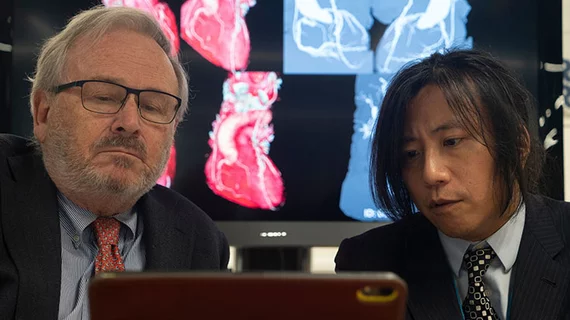Cardiac care specialists in Europe are investigating a new coronary artery bypass grafting (CABG) technique that relies solely on CT imaging data and does not require a catheter.
If successful, this technique could change the very nature of CABG treatments for both patients and healthcare providers.
The very first patient underwent the new-look CABG procedure in September 2020, and a 30-day follow-up CT examination confirmed its success. The FAST TRACK CABG study is scheduled to include another 114 patients.
The research is being sponsored by the National University of Ireland, Galway (NUI Galway) and funded by GE Healthcare.
“Researching the possibility of reducing diagnostic catheterization procedures is important for several reasons,” Yoshi Onuma, MD, PhD, a professor of interventional cardiology at NUI Galway and the study’s deputy chairman, said in a prepared statement. “Catheterization is invasive and it is unpleasant for the patient. It is also costly for the health service and while there is a minimal risk with the procedure it is not completely risk free.”
“The potential impact of this trial will be significant from the perspective of a patient, but also service delivery,” added Tim O’Brien, MD, PhD, dean of the college of medicine at NUI Galway. “The combined benefits arising from a risk reduction to the patient and a less demanding and more cost-effective diagnosis of coronary artery disease present major enhancements in cardiovascular medicine and service delivery.”

